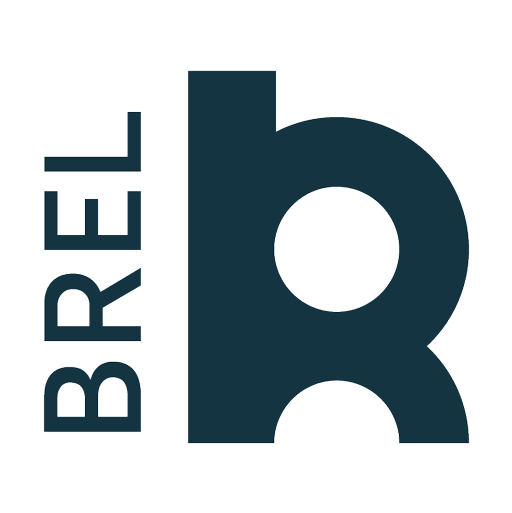Pressroom
Andrew Fielding
Chairman, BREL
Year
2025
Readout of BREL’s inaugural event in the European Parliament – is the EU capable of legislating effectively under its current rules and practices? Or was Draghi right at Rimini?
BREL is pleased to report that its opening event, a Jeffersonian dialogue in the European Parliament, was a resounding success – straight-talking VIP speakers, substantial attendance, relevant focus areas, strong messages.
The breakfast started with a brief refresh of Mario Draghi’s EU stock-take report and Rimini speech, main external threats, current build-out of the EU’s international trade deals and, not least, the EU’s so far underused channels of retaliation (trade defence, anti-coercion…).
The dilemma of the UK post Brexit was also addressed, now caught between the EU and the US gravity pull.
Focus then switched to failings in EU leadership and, in particular, shortcomings in the internal EU decision making process.
Main criticisms of the EU’s legislative approach:
- The European Commission and Permanent Representations still operate in silos. It is difficult for business to discuss issues in a properly rounded way.
- A testimony from industry attendees*:
- “There is often clear dissonance between the activities, for example the circular economy, carried out under the EU’s Green Deal by the Commission’s DG ENVI (environment department) or DG SANTE (health department) and, on the other hand, the policies of DG GROW, whose mandate is to ensure that Europe’s industry stays competitive and innovative.”
- “While DGs can comment on legislative initiatives from other DGs, there seems to be no strategic coordination that thinks about innovation and competitiveness as an integral part of new legislation devised by other DGs. In the past, industries have suggested the idea of an ‘innovation check’ in order to innovation-proof legislation. But rather than this, a new approach should ensure that competitiveness is part of the legislative strategy of the Commission ab initio rather than an afterthought, once legislation has already been drafted by different DGs.
- What is needed is a 360-degree sweep of EU policy architecture and its impact on European economic activity, perhaps through enhanced use of task forces in order to allow all aspects of policy relevant to a given industry to be genuinely heard. Better Impact Assessments and Inter-Service Consultations must be carried out and the Regulatory Scrutiny Board procedure improved.
- BREL will follow up with a series of dialogues on specific issues related to how preparation of EU legislation is arguably failing a ‘balancing test’ and how the process could be improved. A summary of conclusions and recommendations will be posted on BREL website and submitted to key parts of the EU institutions.
*BREL, a not-for-profit Jeffersonian discussion platform, does not represent or promote individual industry interests.
Source
Andrew Fielding
Chairman, BREL
Year
2025
BREL’s inaugural event in the European Parliament – is the EU capable of legislating effectively under its current rules and practices? Or was Draghi right at Rimini?
BREL’s inaugural event will take place this coming Tuesday 30 September and will question whether the EU is able to legislate properly in order to promote new business activity and growth in Europe.
This high-level, free-flowing breakfast discussion, to be held under the Chatham House rule in theEuropean Parliament, is the first in a series of exclusive opportunities for policymakers and top influencers to ask penetrating questions about the viability of the current EU model in a fiercely competitive geopolitical environment.
We are delighted to be welcoming among our distinguished guests: former European Council President Herman Van Rompuy, former Director-General of Trade at the European Commission Jean-Luc Demarty and former UK Science Minister and currently Executive Chairman of FutureLearn Lord Jo Johnson.
We are indebted to MEP Daniel Caspary (EPP, Germany) for agreeing to host our heavily oversubscribed event. Further participants include MEPs, officials from the European Commission, the Permanent Representations of EU27 to the EU institutions, members of trade associations and think tanks.
BREL will summarise and publish the outcome of the discussion and our event partner The Parliament Magazine will also publish a feature about the event online and in its November or December print issue.
BREL plans to make the results of all its deliberations known to key policymakers in the EU institutions, EU capitals and international organisations in its endeavour to drive urgent and concrete change.
Details of our upcoming events will appear on this platform and elsewhere soon.
Better Regulation for European Leadership (BREL) is a new European platform. Its purpose is to attract new thinking on how to improve the EU’s legislative technique in order to unleash sustained growth in Europe.
Risk versus reward in EU regulation: Do our domestic rules go too far? Does our external protection go far enough?
As Europe faces an increasingly complex global landscape, the shift from the Biden administration’s expansive economic policies to a more inward-focused, protectionist approach under the Trump doctrine presents significant challenges. This change is already affecting global trade, international alliances, and Europe’s strategic positioning on the world stage.
With the U.S. possibly retreating from its role as a global economic leader, Europe must carefully assess how to adapt its strategies to ensure continued growth, competitiveness, and economic security. In the coming months, all eyes will be on the EU as it recalibrates its policies, seeks to maintain global influence, and navigates the challenges of potential economic isolationism while strengthening internal unity and resilience.
This event is by invitation only.

